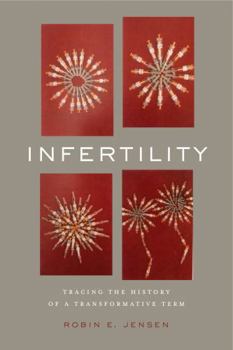Infertility: Tracing the History of a Transformative Term
(Part of the RSA Series in Transdisciplinary Rhetoric Series)
This book explores the arguments, appeals, and narratives that have defined the meaning of infertility in the modern history of the United States and Europe. Throughout the last century, the inability of women to conceive children has been explained by discrepant views: that women are individually culpable for their own reproductive health problems, or that they require the intervention of medical experts to correct abnormalities. Using doctor-patient correspondence, oral histories, and contemporaneous popular and scientific news coverage, Robin Jensen parses the often thin rhetorical divide between moralization and medicalization, revealing how dominating explanations for infertility have emerged from seemingly competing narratives. Her longitudinal account illustrates the ways in which old arguments and appeals do not disappear in the light of new information, but instead reemerge at subsequent, often seemingly disconnected moments to combine and contend with new assertions. Tracing the transformation of language surrounding infertility from "barrenness" to "(in)fertility," this rhetorical analysis both explicates how language was and is used to establish the concept of infertility and shows the implications these rhetorical constructions continue to have for individuals and the societies in which they live.
Format:Paperback
Language:English
ISBN:0271076208
ISBN13:9780271076201
Release Date:October 2016
Publisher:Penn State University Press
Length:240 Pages
Weight:0.70 lbs.
Dimensions:0.5" x 6.5" x 8.9"
Customer Reviews
0 rating





